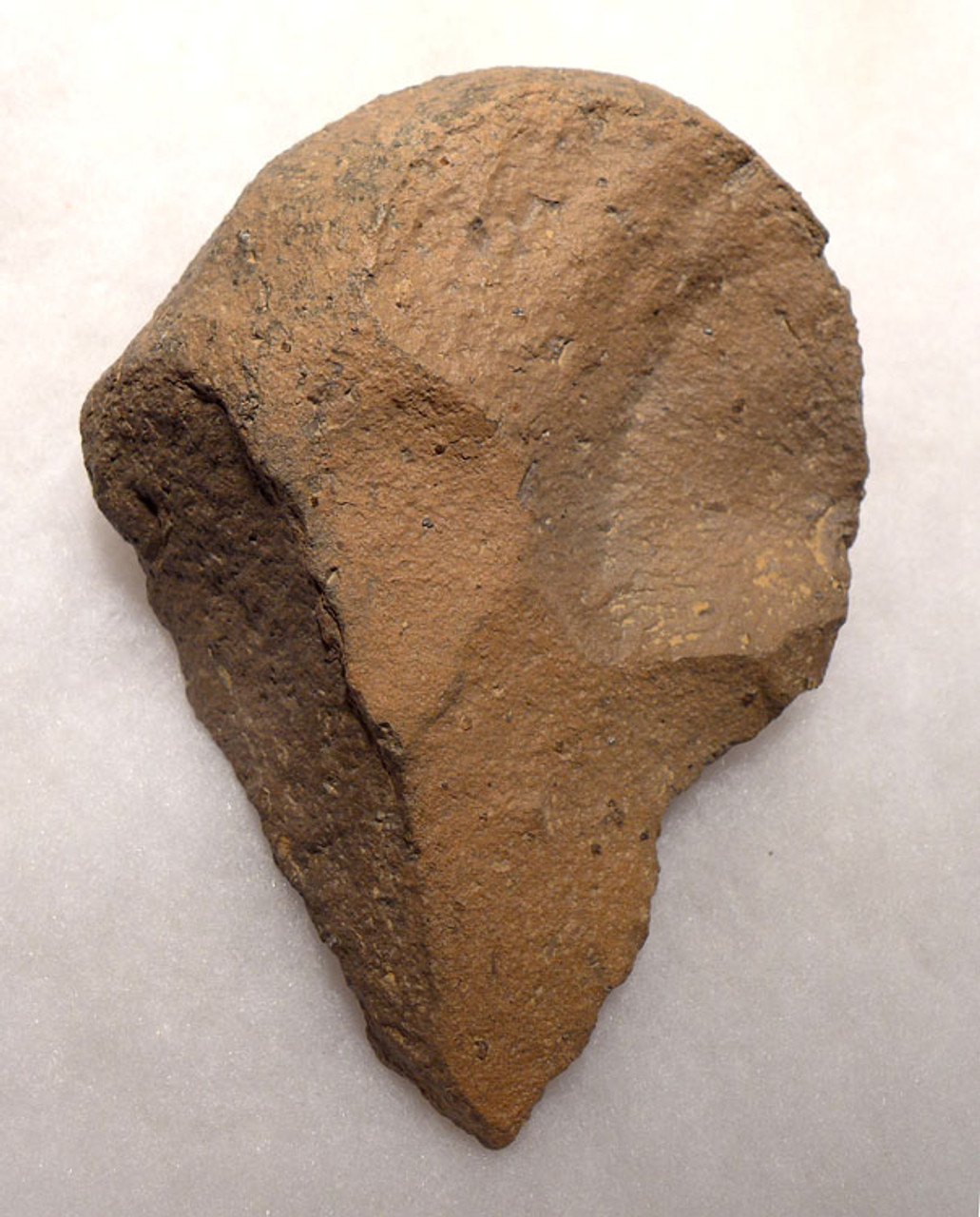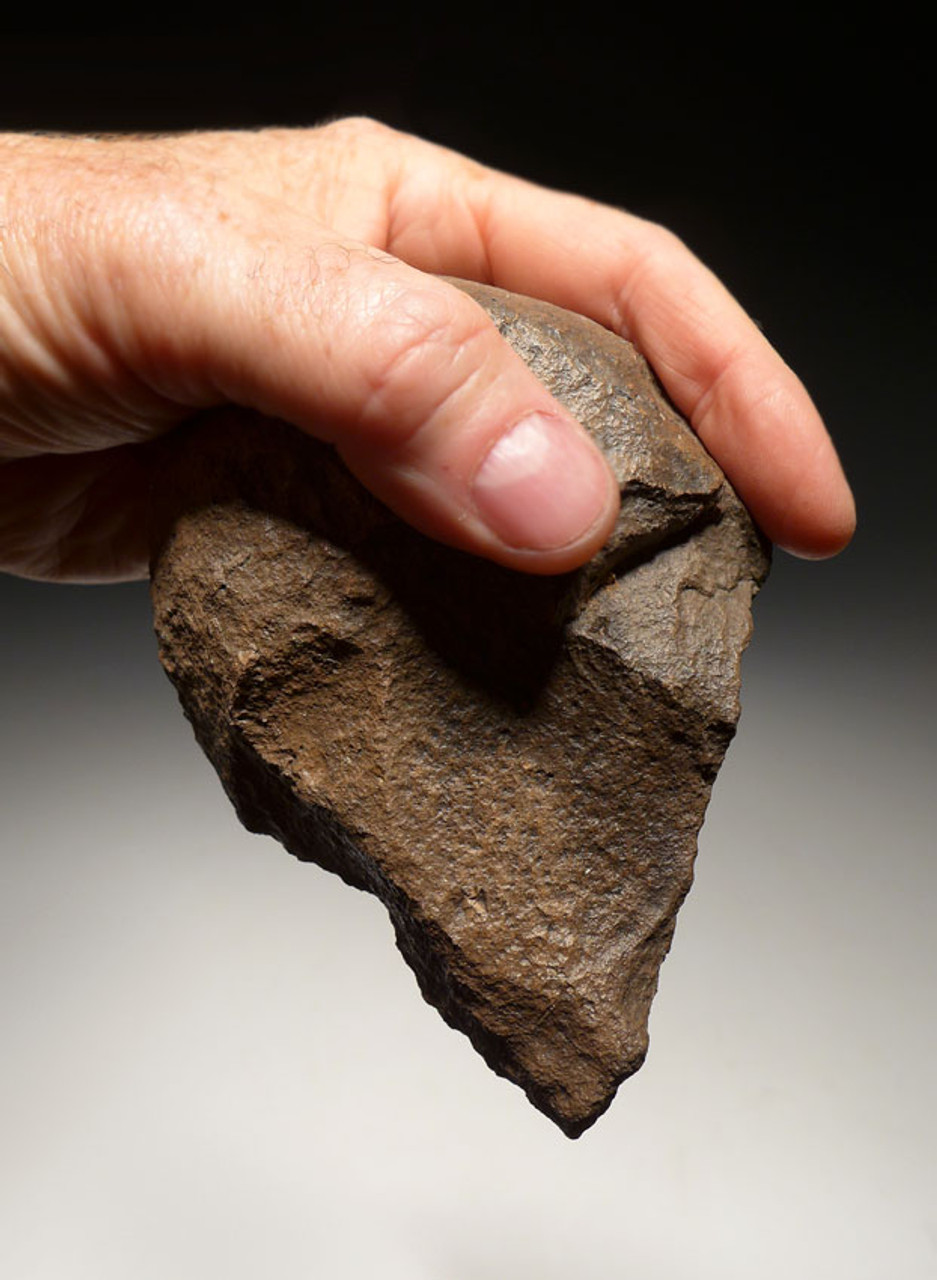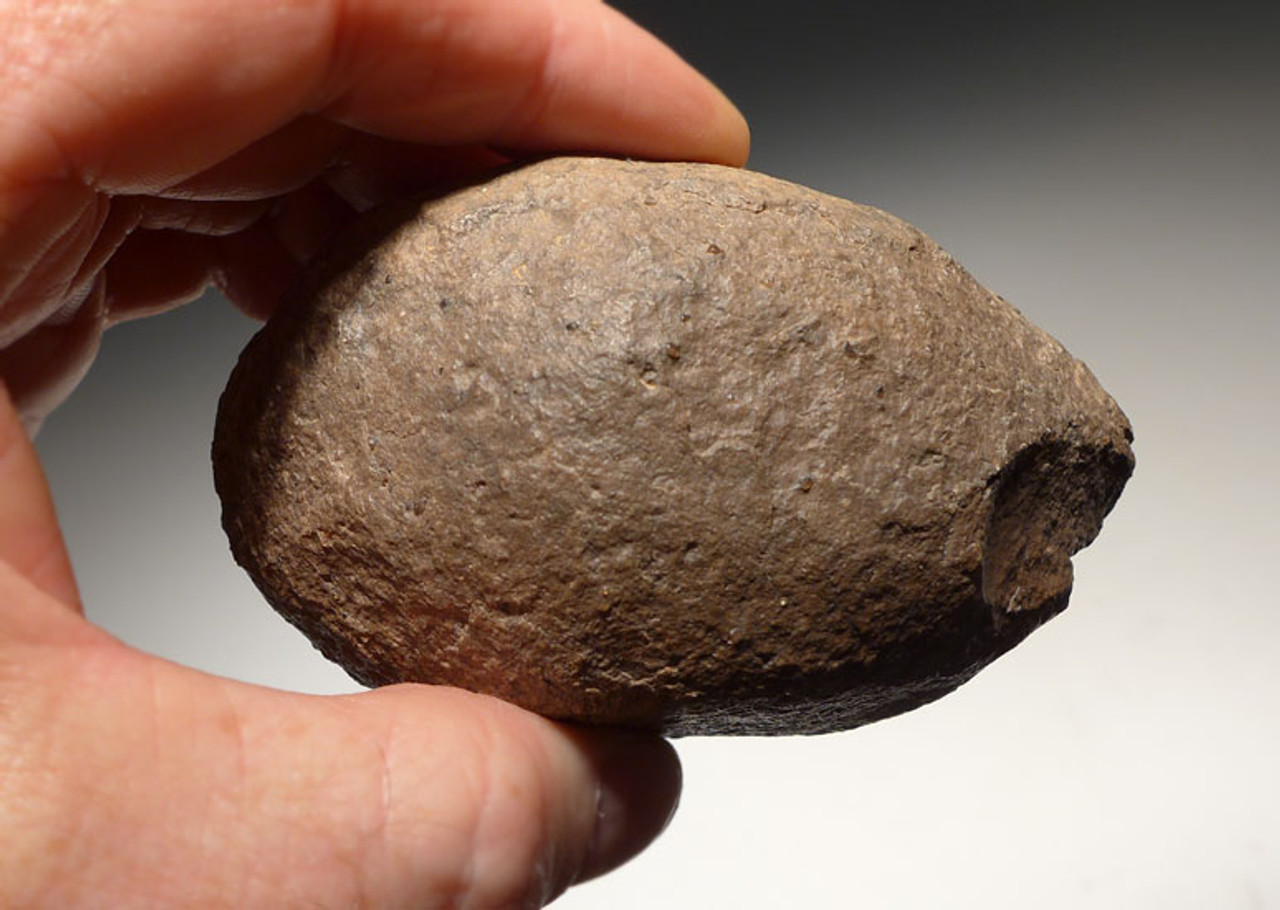Product Description
This is a classic OLDOWAN PEBBLE CHOPPER AXE and is a perfect candidate for demonstrating the earliest primary human stone tool of the Oldowan Tradition of Africa's Lower Paleolithic Period. This specific example possesses a pointed tip, RARE for the Oldowan phase but the emergence of what will later be a typical feature of the later Acheulian technology where all typical hand axes show pointed tips rather than crude chopping ends. It is made from quartzite and shows a beautiful multi-color patina seen only in authentic specimens. Not only is this a wonderfully aesthetic specimen due to its form, the dark red, brown and light tan colors really add additional beauty to an already rare, museum-class example. These multiple colors are caused by the axe laying undisturbed and exposed on one side in the desert for hundreds of thousands of years. The minute crevices of the surface of the stone show no modern crushing or flaking and are filled with desert sediment testifying to its authenticity. The chopping edge is complete and undamaged as made with no modern handling damage. It shows a chisel end made by several opposing strikes. An ideal hand axe for butchering large hunted game of the time such as prehistoric giraffe, bison or elephants. Supreme and INTELLIGENT workmanship throughout. This specimen would make an ideal reference example of exactly what an Oldowan Pebble Chopper Axe should look like.
African pebble tools are not common on the market compared to their much later Acheulian relatives. This specimen is part of a very limited collection we acquired. Despite the fact that there are probably more Oldowan tools in Africa compared to the European specimens we offer, very few African pebble tools are collected or available for public acquisition. This offering poses a rare opportunity to own an AUTHENTIC example of the first known tool type made by humans - a window into the mind and design thought process of our earliest ancestors.
No one can doubt the importance that pebble tools hold in the history of human development. Their very emergence in Africa nearly two million years ago allowed the earliest humans to butcher animals for their meat - the needed nourishment that allowed humans to survive and flourish to one day populate and rule the earth.
HISTORY
Oldowan pebble tools are THE FIRST recognized tools invented by the earliest of primitive humans from Africa. These tools are seldom seen in private collections or public exhibits. Oldowan sites exist in numerous regions of the continent but it takes a very knowledgeable collector to be able to weed out all the naturally-occurring rocks that litter the ground from an actual pebble tool specimen. As the origin of humanity and as the earliest of tool technologies, this African Oldowan specimen poses a very important potential addition to any advanced collection of Paleolithic artifacts. It was made by the African Homo erectus known as Homo ergaster.
 US DOLLAR
US DOLLAR
 EURO
EURO
 AUSTRALIAN DOLLAR
AUSTRALIAN DOLLAR
 CANADIAN DOLLAR
CANADIAN DOLLAR
 POUND STERLING
POUND STERLING




















